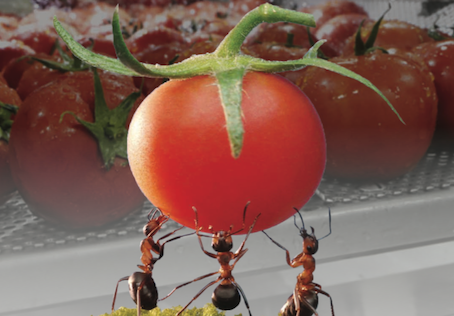Inside BENEO’s new pulse plant: pioneering sustainable protein from faba beans
There is a need to adopt new methods, technology, and machinery for the food processing industry with least impact on sensory qualities such as colour and texture. But due to the dearth of advanced technology owing to limited R&D facilities available for local players, are the odds of India bracing up indigenous manufacturing of technologically advanced equipment in our favour anytime soon?
The food processing industry is one of the mainstays of the global economy with a value addition of $1.7 trillion (for the year 2019). Although India’s food processing levels are much lower than its global counterparts, its strategic geographical location gives it a unique competitive advantage. With abundant raw material supply and a huge domestic market for processed food, the opportunities for the food processing industry are innumerable. As a result, the Indian food processing market is expected to double from $263 billion in 2019-20, to $535 billion in 2025 (according to KPMG report 2021).
An important aspect of the food processing industry is the food equipment and machinery. It is estimated that the gross value of plant and machinery deployed in the food processing sector, by the year 2024-25 will be $51.19 billion (as per KPMG & CII report in 2018). The growth in the food processing equipment market in India is driven mainly by the increased demand for processed food products.
Owing to the pandemic, people now prefer foods and beverages that naturally contain natural, healthy ingredients. There is a growing demand for processing basic products such as fruits, vegetables and grains which require technologically advanced equipment. Therefore, there is a need to adopt new methods, technology, and machinery for the food processing industry with least impact on sensory qualities such as colour and texture.
Further growth of the food processing sector will require creation of infrastructure across the value chain. There is a massive requirement for infrastructure creation, pack houses at the farm gate, cold storage facilities across the value chain, latest technology for processing of food products while retaining its nutritional value, multi-modal logistics, infrastructure at port gateways with phyto-sanitary facilitation etc.
Some of the key features of equipment used in the food processing sector are high precision, automation with high speed, ability to withstand harsh cleaning agents, precise temperature control among others. For instance, stainless steel fabrication is must for any machinery that comes in direct contact with the food product and must be free of cracks and crevices that might retain food particles. The food processing equipment also has a constant need for cleaning and disinfecting, gentle handling and precise control of temperature, pressure, treatment times and other process parameters.
“Advanced technological requirements for the food processing sector makes India one of the largest importers of plant and machinery in the sector. The technological advancements also create a need to replace older machines with new ones for the food processing companies. Therefore, India is poised to remain an attractive market for technology companies for their solutions to both new entrants as well as existing players for replacement of older machines”, says Mohit Bhasin, Partner and National Leader – Economic Development Advisory, KPMG, Gurugram.
Import overview
Medium and big players in the food processing industry mostly import critical components required for their processes. For small players in the industry, cost of the imported equipment is a big constraint and hence they go for local fabricated machines and equipment supporting local food processing equipment manufacturing industry.
Currently, the equipment manufactured in the country lacks the precision required for complex processes involved in food processing, due to dearth of advanced technology owing to limited research and development facilities available for local manufacturers.
According to the database of the Department of Commerce, India imported $209 million worth of plant and machinery in the year 2019-20 for the food processing sector. However, this number does not include generic equipment, which are not exclusively used in the food processing industry. This figure might also be affected due to the pandemic that started rising towards the end of the FY19-20.
Out of the total import of $209 million for the food processing equipment carried out in 2019, import for the bakery sector equipment was $34 million, followed by $26 million for confectionery and $15 million for the dairy segment. On the whole, the bakery, cocoa and chocolate processing is the largest sub-sector importing equipment for food processing.
According to the Mechanical Engineering Industry Association (VDMA), India is the third largest sales market for food processing and packaging machines of German origin in Asia, after China and South Korea. In fact, Germany is one of the most important suppliers to India, after China and Italy. Filling and sealing machines, confectionery machines, machines for processing cereals and pulses, bakery and meat processing are a few of the most demanding machines in India in the food processing and packaging sector.
Click here to read the full story…

